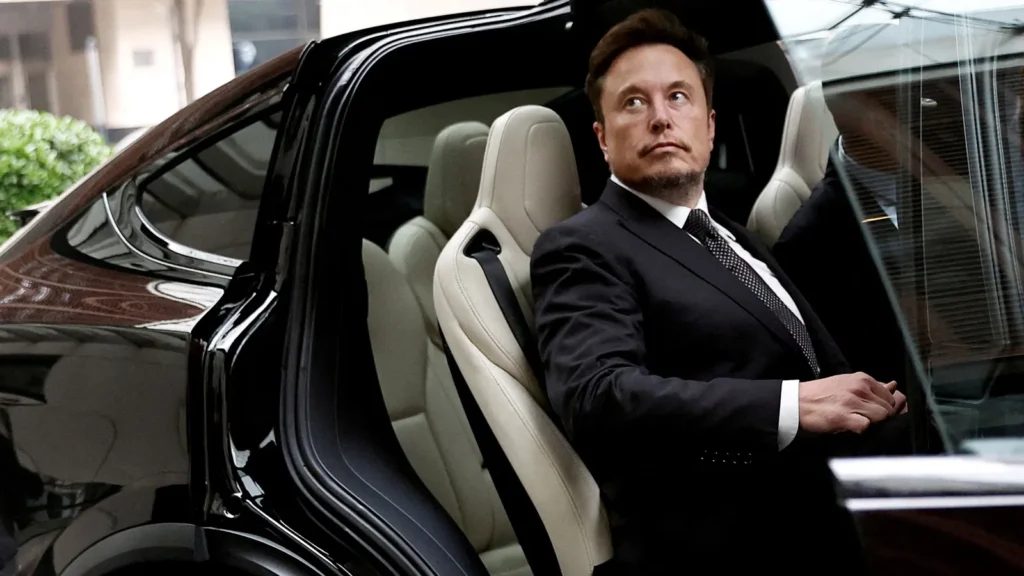Tesla’s stock surged in the third quarter of 2024 after the electric vehicle (EV) giant reported better-than-expected delivery numbers and made significant progress in its autonomous driving technologies. This performance highlights Tesla’s continuing dominance in the electric vehicle market, even as competition intensifies globally.
The company’s shares jumped nearly 10% in mid-September following the release of its quarterly delivery report, which showed robust growth in both vehicle production and deliveries. This, combined with its ongoing advances in autonomous driving, has investors optimistic about Tesla’s long-term prospects.
Record Deliveries Despite Global Challenges
Tesla reported that it delivered over 460,000 vehicles globally in Q3 2024, beating analyst expectations and representing a 12% increase compared to the previous quarter. This surge in deliveries was driven by strong demand for Tesla’s Model 3 and Model Y vehicles, which continue to lead the EV market in terms of sales.
Despite facing supply chain disruptions, particularly in securing critical materials like lithium and semiconductor chips, Tesla has managed to maintain its production targets. The company’s global gigafactory network, including its factories in Shanghai, Berlin, and Texas, has been instrumental in ramping up production to meet demand. CEO Elon Musk highlighted the company’s efforts to streamline supply chains and improve production efficiency, which has allowed Tesla to deliver vehicles at scale.
In addition to strong delivery numbers, Tesla’s energy division has also seen significant growth, particularly in its solar and battery storage products. The company’s Powerwall and Megapack systems have experienced increased demand as more consumers and businesses look to transition to renewable energy sources.
Pushing the Boundaries of Autonomous Driving
Tesla’s innovation in autonomous driving technology has been another key driver of its recent stock surge. The company’s Full Self-Driving (FSD) software, which has been in development for years, is making strides toward a fully autonomous system. Tesla announced that it would expand its FSD beta program to more users globally, allowing more Tesla drivers to experience the software’s latest updates.
This progress has renewed investor confidence in Tesla’s ability to lead the autonomous vehicle market. While Tesla’s FSD is still categorized as Level 2 autonomy (requiring driver supervision), the company has made bold claims about reaching full autonomy in the near future. Tesla’s emphasis on artificial intelligence and neural networks for self-driving technology positions it uniquely in the automotive sector, with competitors such as Waymo and Cruise following closely behind.
However, Tesla’s FSD rollout has not been without controversy. The company has faced regulatory scrutiny, particularly in the United States and Europe, over the safety of its autonomous driving systems. Tesla has repeatedly defended its technology, citing improvements in safety data and its commitment to refining the system based on real-world driving experiences.
Outlook for Tesla
With the global shift toward electric mobility accelerating, Tesla remains at the forefront of the EV revolution. The company’s Q3 delivery success, coupled with its advancements in autonomous driving, signal a strong outlook for the remainder of 2024. Tesla’s continued focus on innovation, coupled with its ability to scale production, has reassured investors that it can maintain its competitive edge in a fast-evolving industry.
As more governments introduce stricter emissions regulations and promote the adoption of electric vehicles, Tesla is well-positioned to capitalize on the growing demand. Analysts predict that Tesla’s stock could continue its upward trajectory, particularly as the company expands its product lineup and continues to push the boundaries of autonomous driving technology. However, the company will need to navigate ongoing regulatory challenges and supply chain constraints to sustain its growth.
From Our Editorial Team
Our Editorial team comprises of over 15 highly motivated bunch of individuals, who work tirelessly to get the most sought after curated content for our subscribers.


